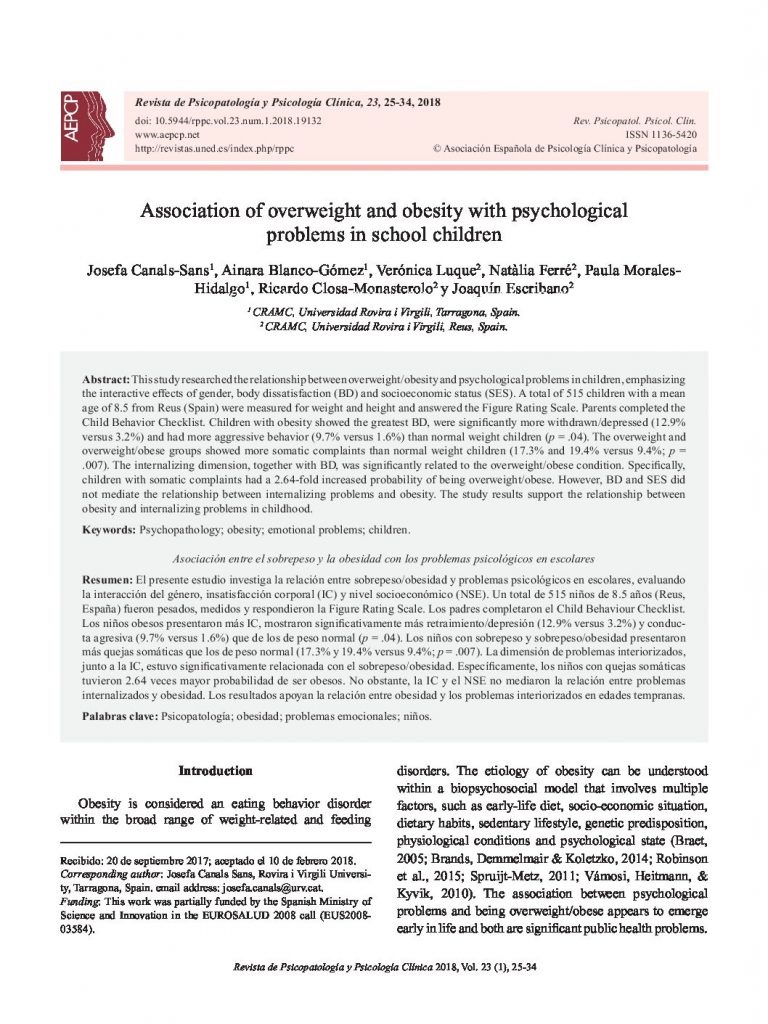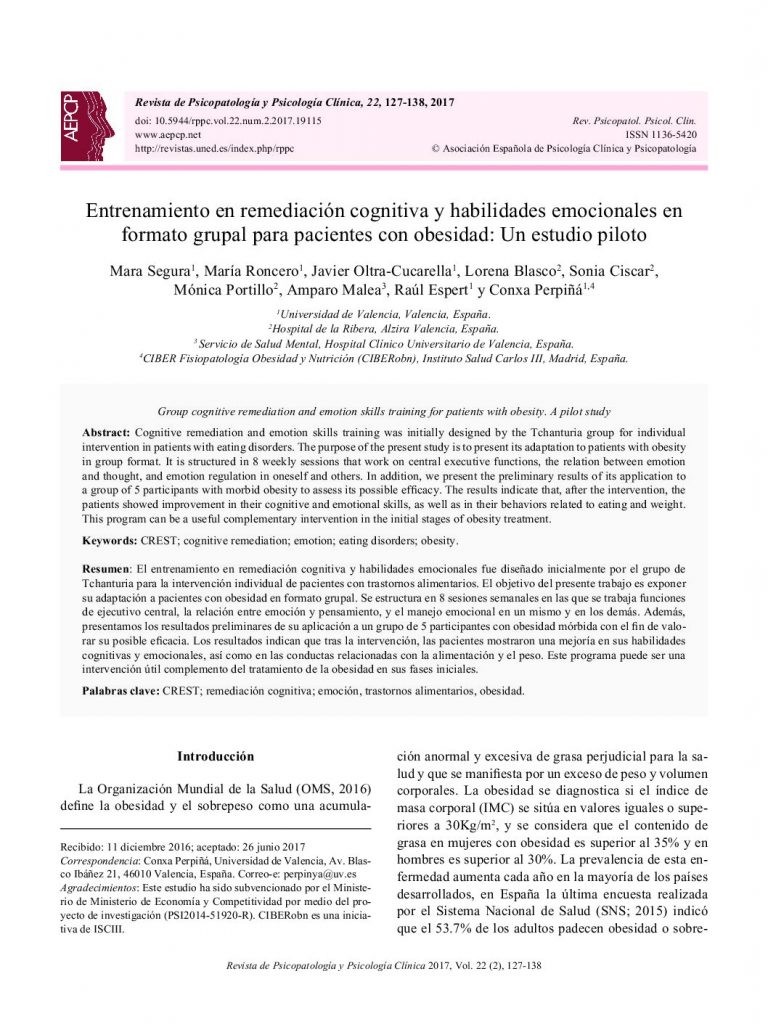Association of overweight and obesity with psychological problems in school children.

- Factores protectores y de riesgo del trastorno de conducta y del trastorno de déficit de atención e hiperactividad. Una revisión sistemática.
- El papel moderador de los estilos parentales en la relación entre la impulsividad y el consumo de alcohol en una muestra de adolescentes españoles.
- Type D personality, lifestyle habits, and cardiovascular disease risk: A mediational model.
- Association of overweight and obesity with psychological problems in school children.
- Adherencia al tratamiento y efectividad de un programa cognitivo conductual sobre la rumiación y expresión de la ira.
- Rasgos de personalidad y recursos psicológicos como predictores del bienestar emocional en adolescentes con y sin formación en escuelas de tauromaquia.
- Jesús Sánchez-Caro (2017). La enferma Teresa de Ávila. Burgos: Grupo Editorial Fonte.
This study researched the relationship between overweight/obesity and psychological problems in children, emphasizing the interactive effects of gender, body dissatisfaction (BD) and socioeconomic status (SES). A total of 515 children with a mean age of 8.5 from Reus (Spain) were measured for weight and height and answered the Figure Rating Scale. Parents completed the Child Behavior Checklist. Children with obesity showed the greatest BD, were significantly more withdrawn/depressed (12.9% versus 3.2%) and had more aggressive behavior (9.7% versus 1.6%) than normal weight children (p = .04). The overweight and overweight/obese groups showed more somatic complaints than normal weight children (17.3% and 19.4% versus 9.4%; p = .007). The internalizing dimension, together with BD, was significantly related to the overweight/obese condition. Specifically, children with somatic complaints had a 2.64-fold increased probability of being overweight/obese. However, BD and SES did not mediate the relationship between internalizing problems and obesity. The study results support the relationship between obesity and internalizing problems in childhood.
El presente estudio investiga la relación entre sobrepeso/obesidad y problemas psicológicos en escolares, evaluando la interacción del género, insatisfacción corporal (IC) y nivel socioeconómico (NSE). Un total de 515 niños de 8.5 años (Reus, España) fueron pesados, medidos y respondieron la Figure Rating Scale. Los padres completaron el Child Behaviour Checklist. Los niños obesos presentaron más IC, mostraron significativamente más retraimiento/depresión (12.9% versus 3.2%) y conducta agresiva (9.7% versus 1.6%) que de los de peso normal (p = .04). Los niños con sobrepeso y sobrepeso/obesidad presentaron más quejas somáticas que los de peso normal (17.3% y 19.4% versus 9.4%; p = .007). La dimensión de problemas interiorizados, junto a la IC, estuvo significativamente relacionada con el sobrepeso/obesidad. Específicamente, los niños con quejas somáticas tuvieron 2.64 veces mayor probabilidad de ser obesos. No obstante, la IC y el NSE no mediaron la relación entre problemas internalizados y obesidad. Los resultados apoyan la relación entre obesidad y los problemas interiorizados en edades tempranas.




